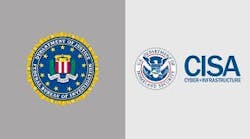RESTON, Va. -- Northrop Grumman Corporation (NYSE: NOC) today commented on critics of the Defense Travel System (DTS) and their efforts which would halt continued development of a program designed to save tax dollars spent on travel administration by the U.S. Department of Defense.
DTS is the only system that can meet the full spectrum of cost, capability, security and savings requirements - as well as the protection of personal information - so important to the Defense Department and its global travelers. Interrupting development of this important program would cause an enormous disruption, adversely affecting and, in some cases, seriously jeopardizing Defense Department mission requirements.
The company also emphatically disputes the accuracy of recent statements and mathematical calculations being used to misrepresent the system's benefits.
COST
The estimated $263.7 million cost of the Northrop Grumman contract has not
changed since the contract was awarded in 1998. To date, the Defense
Department has paid the company just over $244 million. The total Defense
Department cost has actually decreased from the original $492 million estimate
in 1998 to $474 million today.
Critics' assertion that each DTS transaction cost $1,500 - excluding the cost of the actual ticket - is an exercise in fuzzy math. It is akin to calculating monthly housing costs by dividing a 30-year mortgage only by the first 12 months of home ownership. DTS has successfully processed more than one million authorizations, including more than 90,000 last month. The system is now used at more than half of the Defense Department's 11,000 sites by over 680,000 uniformed and civilian employees.
Halting DTS development would be the wasteful discard of a $400 million investment by taxpayers in an existing, operational, effective system before its benefits have been fully realized while spending an additional $40 million to $65 million per year using eTravel, which does not meet the Defense Department's security and interface requirements.
CAPABILITY
The operational benefits of this networked system, combined with lower
transaction and processing fees, will result in enormous direct and indirect
cost savings. Opponents of DTS mistakenly contend that the Defense Department
could reduce its costs by using the eTravel service developed for civil
agencies. Using eTravel would add tens of millions of dollars to the annual
cost of Defense Department travel. Unlike eTravel, the Defense Department has
invested in developing not only a travel service but also an accounting and
financial management system that interfaces with 21 financial systems.
SECURITY
Northrop Grumman conducted lengthy, extensive tests to ensure DTS met all
Defense Department Public Key Infrastructure (PKI) and information assurance
requirements. No other systems or vendors provide comparable required security
functions.
SAVINGS
DTS is projected to save $178 million in productivity costs and $56
million in real dollars each year when fully deployed in 2007. A move to an
eTravel service would forego about $25 million of the conservatively estimated
$56 million in annual savings that DTS would produce.
DTS also has automated audit functions that detect and prevent waste and abuse, as well as fares that don't exist in the other products, including needless expenses on unused tickets and unauthorized premium.
DTS is a Web-based, secure, end-to-end system that automates authorizations, reservations, voucher processing, payment and archiving for Defense Department travel transactions. DTS replaces manual administration with automated solutions, reducing travel costs and simplifying travel management.
Northrop Grumman Mission Systems, based in Reston, Va., is a global integrator of complex, mission-enabling systems and services for defense, intelligence and civil government markets. The sector's technology leadership and expertise spans areas such as strategic systems, including ICBMs; missile defense; intelligence, surveillance and reconnaissance; command and control; and technical services and training.

